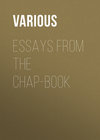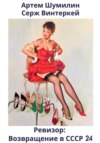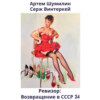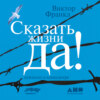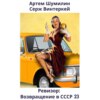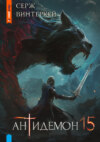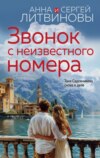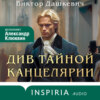Читать книгу: «Essays from the Chap-Book», страница 7
The Man Who Dares
By
Louise Chandler Moulton
THE MAN WHO DARES
“BALLADS AND SONGS,” BY JOHN DAVIDSON
GRANT ALLEN has written of “The Woman Who Did” – and the title suggests that John Davidson may fitly be called “The Man Who Dares;” for certainly some of his themes and some of his lines, in this his latest book, are among the most daring in modern literature.
Richard Le Gallienne, in comparing William Watson and John Davidson, suggests that Davidson is a great man, and Watson a great manner. This is a statement I am not ready to indorse. I think Watson has much more than a great manner. He has noble and stately thought, a large outlook, and, in his own direction, subtle and keen perception. He knows the moods of the spirit, the reach of the soul; but the human heart does not cry out to him. He waits in the stately Court of the Intellect, and surveys the far heavens through its luminous windows.
Davidson, on the contrary, hearkens to the heart’s cry. The passionate senses clamor in his lines. Ceaseless unrest assails him. Doubt and faith war in him for mastery. Above all he is human; and, secondly, he is modern. “Perfervid,” “A Practical Novelist,” and two or three other tales, at once merry and fantastic, prove his gifts as a story-teller. He has written several delightful plays, among which “Scaramouch In Naxos” is, perhaps, the most remarkable. Its originality, its charm, its wayward grace give it a place to itself in modern literature; and I doubt if we have any other man who could have given us quite the same thing. But when the right to careful attention of his other work has been fully admitted, I am inclined to think that nowhere does he more thoroughly prove his high claim to distinction than in his “Fleet-Street Eclogues,” and his new volume of “Ballads and Songs.”
Of all these Ballads the three that have most moved me are “A Ballad of a Nun,” “A Ballad of Heaven,” and “A Ballad of Hell.” There is much crude strength in “A Ballad in Blank Verse of the Making of a Poet;” but the blank verse, impassioned though it be, has neither the stately splendor of Milton nor the artistic and finished grace of Tennyson. It is full of stress and strain, – this story of a youth who was brought up by a father and mother who really believed that the soul’s probation ends with this brief span of earthly life, and that
“In life it is your privilege to choose,
But after death you have no choice at all.”
He tortured his mother by his unbelief, until he slowly broke her heart, and “she died, in anguish for his sins.” His father upbraided him, and he cried – very naturally, if not very poetically —
“Oh, let me be!”
Then he sought his Aphrodite, and found her, dull, tawdry, unbeautiful, – an outcast of the streets. He wrote his dreams; and then he felt that they were lies. He grew desperate, at last, and professed himself convicted of sin, and became a Christian – resolved to please his father, if he could not please himself. But this phase could not last; and he shattered his father’s new-found happiness by a wild denunciation of all creeds, and an assertion that there is no God higher than ourselves. Then was the father torn between his desire to seek his wife in Heaven, and his impulse to go with his son into the jaws of Hell. At last, in his turn, the father died; and the poet – the child of storm and stress – was left at liberty to be himself —
“ – a thoroughfare
For all the pageantry of Time; to catch
The mutterings of the Spirit of the Hour,
And make them known.”
There are lines, here and there, in this poem of exquisite beauty; but there are others that seem to me “tolerable and not to be endured.”
I make my “Exodus From Houndsditch,” without as yet being tempted to linger there, and come to “A Ballad of a Nun.” And here, indeed, you have something of which only John Davidson has proved himself capable. The Ballad tells the old Roman Catholic legend of the Nun whom the lust of the flesh tempted.
There are stanzas here of such splendid power and beauty that they thrill one like noble and stirring music. You shall listen to some of them. The Abbess loved this Nun so well that she had trusted her above all the rest, and made her the Keeper of the Door: —
“High on a hill the Convent hung,
Across a duchy looking down,
Where everlasting mountains flung
Their shadows over tower and town.
“The jewels of their lofty snows
In constellations flashed at night;
Above their crests the moon arose;
The deep earth shuddered with delight.
“Long ere she left her cloudy bed,
Still dreaming in the orient land,
On many a mountain’s happy head
Dawn lightly laid her rosy hand.
“The adventurous sun took heaven by storm;
Clouds scattered largesses of rain;
The sounding cities, rich and warm,
Smouldered and glittered in the plain.
“Sometimes it was a wandering wind,
Sometimes the fragrance of the pine,
Sometimes the thought how others sinned
That turned her sweet blood into wine.
“Sometimes she heard a serenade
Complaining sweetly, far away:
She said, ‘A young man wooes a maid;
And dreamt of love till break of day.”
In vain she plied her knotted scourge. Day after day she “had still the same red sin to purge.” Winter came, and the snow shut in hill and plain; and she watched the nearest city glow beneath the frosty sky. “Her hungry heart devoured the town;” until, at last, she tore her fillet and veil into strips, and cast aside the ring and bracelet that she wore as the betrothed of Christ: —
“‘Life’s dearest meaning I shall probe;
Lo! I shall taste of love, at last!
Away!’ She doffed her outer robe,
And sent it sailing down the blast.
“Her body seemed to warm the wind;
With bleeding feet o’er ice she ran;
‘I leave the righteous God behind;
I go to worship sinful man.’”
She reached “the sounding city’s gate.” She drank the wild cup of love to the dregs. She cried —
“‘I am sister to the mountains, now,
And sister to the sun and moon.’”
She made her queen-like progress. She loved and lived —
“But soon her fire to ashes burned;
Her beauty changed to haggardness;
Her golden hair to silver turned;
The hour came of her last caress.
“At midnight from her lonely bed
She rose, and said, ‘I have had my will.’
The old ragged robe she donned, and fled
Back to the convent on the hill.”
She blessed, as she ran thither, the comfortable convent laws by which nuns who had sinned as she had done were buried alive. But I must copy the remaining stanzas, for no condensation can do justice to their tender, piteous, triumphant charm: —
“Like tired bells chiming in their sleep,
The wind faint peals of laughter bore;
She stopped her ears and climbed the steep,
And thundered at the convent door.
“It opened straight: she entered in,
And at the Wardress’ feet fell prone:
‘I come to purge away my sin;
Bury me, close me up in stone.’
“The Wardress raised her tenderly;
She touched her wet and fast-shut eyes:
‘Look, sister; sister, look at me;
Look; can you see through my disguise?’
“She looked, and saw her own sad face,
And trembled, wondering, ‘Who art thou?’
‘God sent me down to fill your place:
I am the Virgin Mary now.’
“And with the word, God’s mother shone:
The wanderer whispered, ‘Mary, Hail!’
The vision helped her to put on
Bracelet and fillet, ring and veil.
“‘You are sister to the mountains now,
And sister to the day and night;
Sister to God.’ And on the brow
She kissed her thrice, and left her sight.
“While dreaming in her cloudy bed,
Far in the crimson orient land,
On many a mountain’s happy head
Dawn lightly laid her rosy hand.”
“A Ballad of a Nun” seems to me Mr. Davidson’s crowning achievement; yet “A Ballad of Heaven” and “A Ballad of Hell” are scarcely less striking. In “A Ballad of Heaven” there is a musician who works for years at one great composition. The world ignores him. His wife and child, clothed in rags, are starving in their windy garret; but he does not know it, for he dwells in the strange, far heaven of his music.
“Wistful he grew, but never feared;
For always on the midnight skies
His rich orchestral score appeared,
In stars and zones and galaxies.”
He turns, at last, from his completed score to seek the sympathy of love; but wife and child are lying dead. He gathers to his breast the stark, wan wife with the baby skeleton in her arms.
“‘You see you are alive,’ he cried.
He rocked them gently to and fro.
‘No, no, my love, you have not died;
Nor you, my little fellow; no.’
“Long in his arms he strained his dead,
And crooned an antique lullaby;
Then laid them on the lowly bed,
And broke down with a doleful cry.”
Then his own heart broke, at last, and he, too, was dead.
“Straightway he stood at heaven’s gate
Abashed, and trembling for his sin:
I trow he had not long to wait
For God came out and led him in.
“And then there ran a radiant pair.
Ruddy with haste and eager-eyed,
To meet him first upon the stair —
His wife and child, beatified.
“God, smiling, took him by the hand,
And led him to the brink of heaven:
He saw where systems whirling stand,
Where galaxies like snow are driven.”
And lo! it was to his own music that the very spheres were moving.
“A Ballad of Hell” tells the story of a woman’s love and a woman’s courage. Her lover writes her that he must go to prison, unless he marries, the next day, his cousin whom he abhors. There is no refuge but in death; and by her love he conjures her to kill herself at midnight, and meet him, though it must be in Hell. She waited till sleep had fallen on the house. Then out into the night she went, hurried to the trysting oak, and there she drove her dagger home into her heart, and fell on sleep. She woke in Hell. The devil was quite ready to welcome her; but she answered him only —
“‘I am young Malespina’s bride;
Has he come hither yet?’”
But Malespina had turned coward, when the supreme test came, and he was to marry his cousin on the morrow. For long, and long, she would not believe; but when long waiting brought certainty, at last, she cried —
“‘I was betrayed. I will not stay.’”
And straight across the gulf between Hell and Heaven she walked: —
“To her it seemed a meadow fair;
And flowers sprang up about her feet;
She entered Heaven; she climbed the stair,
And knelt down at the mercy-seat.”
Next to these three Ballads I should rank “Thirty Bob A Week.” It is of the solid earth, and has none of the Dantesque weirdness of the Ballads of Hell and Heaven; but it is stronger than either of them in its own way – this monologue of the man who must live on thirty shillings a week, and make the best of it.
“But the difficultest go to understand,
And the difficultest job a man can do,
Is to come it brave and meek, with thirty bob a week,
And feel that that’s the proper thing for you.
“It’s a naked child against a hungry wolf;
It’s playing bowls upon a splitting wreck;
It’s walking on a string across a gulf,
With millstones fore-an-aft about your neck;
But the thing is daily done by many and many a one;
And we fall, face-forward, fighting, on the deck.”
Here is a man to whom nothing human is foreign – who understands because he feels.
It is the “Ballads” rather than the “Songs,” which give to this book its exceptional value, yet some of the Songs are charming – for instance, the two “To the Street Piano,” “A Laborer’s Wife,” and “After the End.” Indeed there is nothing in the volume more deeply imbued with the human sympathy, of which Mr. Davidson’s work is so pregnant, than these two songs. Witness the refrain to the one which the laborer’s wife sings: —
“Oh! once I had my fling!
I romped at ging-go-ring;
I used to dance and sing,
And play at everything.
I never feared the light;
I shrank from no one’s sight;
I saw the world was right;
I always slept at night.”
But in an evil hour she married, “on the sly.” Now three pale children fight and whine all day; her “man” gets drunk; her head and her bones are sore; and her heart is hacked; and she sings —
“Now I fear the light;
I shrink from every sight;
I see there’s nothing right;
I hope to die to-night.”
“After the End” is in a very different key. It is more universal. Kings and queens, as well as the humblest of their subjects, may well cry out, into the unknown dark —
“After the end of all things,
After the years are spent,
After the loom is broken,
After the robe is rent,
Will there be hearts a-beating,
Will friend converse with friend,
Will men and women be lovers,
After the end?”
“In Romney Marsh” is a fascinating bit of landscape-painting; and “A Cinque Port” has a melancholy and suggestive beauty that makes me long for space to copy it. The “Songs” for “Spring,” “Summer,” “Autumn,” and “Winter” are charming, also.
There is thought enough and strength enough in the “Songs,” “To the New Women,” and “To the New Men;” but they are rhymed prose, rather than poetry – if, indeed, “what” and “hot” can be said to rhyme with “thought.”
Why, oh why, does Mr. Davidson treat us to such uncouth words as “bellettrist,” and “moneyers,” and “strappadoes”? – why talk to us of “apes in lusts unspoken,” and “fools, who lick the lip and roll the lustful eye”? “The Exodus From Houndsditch,” which contains these phrases, is certainly hard reading; but one is compelled, all the same, to read it more than once, for it is pregnant with thought, and here and there it is starred with splendid lines, such as —
“The chill wind whispered winter; night set in;
Stars flickered high; and like a tidal wave,
He heard the rolling multitudinous din
Of life the city lave – ”
or the picture of some fantastic world,
“Where wild weeds half way down the frowning bank
Flutter, like poor apparel stained and sere,
And lamplight flowers, with hearts of gold, their rank
And baleful blossoms rear.”
One closes Mr. Davidson’s book with reluctance, and with a haunting sense of beauty, and power, and the promise of yet greater things to come. He is a young man – scarcely past thirty; what laurels are springing up for him to gather in the future, who shall say? Happily he is not faultless – since for the faultless there is no perspective of hope.
R. L. S. – Some Edinburgh Notes
By
Eve Blantyre Simpson
R. L. S. – SOME EDINBURGH NOTES
Give me again all that was there,
Give me the sun that shone!
Give me the eyes, give me the soul,
Give me the lad that’s gone!
Robert Louis Stevenson.
LOUIS STEVENSON was born in 8 Howard Place, then an outlying suburban street between Edinburgh and the sea; and the substantial but unpretending house with its small plot of garden in front will doubtless be visited with interest in future by those who like to look on the birthplaces of famous men.
17 Heriot Row, on one of Edinburgh’s level terraces between the steep hills, “from which you see a perspective of a mile or so of falling street,” became his home before he was out of velvet tunics and socks, but as his mother was delicate, they lived when the weather was genial “in the green lap of the Rutland Hills,” at Swanston, a few miles from Edinburgh. He, however, spent his winters at Heriot Row, when he grew into an Academy boy, though not a specially brilliant scholar. His doubtful health would often stand as an excuse, when the rain splattered on the panes, or the square gardens opposite were hid in a scowling “haur,” for the small Louis to remain and “Child Play” beside his pretty mother. No doubt, too, the truant spirit was strong within him when he trotted down hill to school, “rasping his clachan1 on the area railings” as he made an Edinburgh hero of his do. We first knew Louis Stevenson when his schooldays and teens were past, and he was facing what he called “the equinoctial gales of youth,” and beginning to put his self-taught art of writing into print. He had great railings against his native town in these days, which were somewhere in the heart of the seventies. The “meteorological purgatory” of its climate embittered him, as his frail frame suffered sorely from the bleak blasts. He vowed his fellow-townsmen had a list to one side by reason of having to struggle against the East wind. He gave his spleen vent in “Picturesque Notes of Edinburgh,” yet by way of apology he says, “the place establishes an interest in people’s hearts; go where they will, they find no city of the same distinction, go where they will, they take a pride in their old home.” No one could clothe the historical tales of Edinburgh in more graphic words than this slim son of hers. Often he would talk thereon, and he speaks of his joy, as a lad, in finding “a nugget of cottages at Broughton;” and any bit of old village embedded in the modern town, he espied and rejoiced over. He would frequently drop in to dinner with us, and of an evening he had the run of our smoking-room. After 10 P. M., when a stern old servant went to bed, the “open sesame” to our door was a rattle on the letter-box. He liked this admittance by secret sign, and we liked to hear his special rat-a-tat, for we knew we would then enjoy an hour or two of talk which, he said, “is the harmonious speech of two or more, and is by far the most accessible of pleasures.” He always adhered to the same dress for all entertainments, a shabby, short, velveteen jacket, a loose, Byronic, collared shirt (for a brief space he adopted black flannel ones), and meagre, shabby-looking trousers. His straight hair he wore long, and he looked like an unsuccessful artist, or a poorly-clad but eager student. He was then fragile in figure and, to use a Scottish expression, shilpit looking. There is no English equivalent for shilpit, being lean, starveling, ill-thriven, in one. His dark, bright eyes were his most noticeable and attractive feature, – wide apart, almost Japanese in their shape, and above them a fine brow.
He was pale and sallow, and there was a foreign, almost gypsy look about him, despite his long-headed Scotch ancestry. In the “Inland Voyage,” he complains, he “never succeeded in persuading a single official abroad of his nationality.” I do not wonder he was suspected of being a spy with false passports, for he had a very un-British smack about him; but, slim and pinched-looking though he was, he still commanded notice by his unique appearance and his vivacity of expression. His manners, too, had a foreign air with waving gestures, elaborate bows, and a graceful nimbleness of action.
By our library fire, on the winter evenings, he planned the canoe trip with my brother, and told us in the following season how the record of this “Inland Voyage” progressed. He was also laying future plans for a further trip, as he said, smiling with fun, with another donkey, – this time to the Cevennes. After the “Inland Voyage,” Louis was full of a project to buy a barge and saunter through the canals of Europe, Venice being the far-off terminus. A few select shareholders in this scheme were chosen, mostly artists, for the barge plan was projected in the mellow autumnal days at Fontainebleau Forest where artists abounded. Robert A. Stevenson, Louis’s cousin, then a wielder of the brush, was to be of the company. He, too, though he came of the shrewd Scottish civil engineer stock, had, like his kinsman, a foreign look and a strong touch of Bohemianism in him. He, also, with these alien looks, had his cousin’s attractive power of speech and fertile imagination. The barge company were then all in the hey-day of their youth. They were to paint fame-enduring pictures, as they leisurely sailed through life and Europe, and when bowed, gray-bearded, bald-headed men, they were to cease their journeyings at Venice. There, before St. Marks, a crowd of clamorously eager picture-dealers and lovers of art were to be waiting to purchase the wonderful work of the wanderers. The scene in the piazza of St. Marks on the barge’s arrival, and the excited throng of anxious buyers, the hoary-headed artists, tottering under the weight of canvases, was pictured in glowing colors by their author, when the forest was smelling of the “ripe breath of autumn.” The barge was purchased, but bankruptcy presently stared its shareholders in the face. The picture-dealers of that day were not thirsting to buy shareholders’ pictures. The man of the pen had only ventured on an “Inland Voyage,” and as yet no golden harvest for his work lined the pockets of his velveteen coat. The barge was arrested and, with it, the canoes which have earned an everlasting fame through the “Arethusa’s” pen. They were rescued, the barge sold, and the company wound up.
We saw most of Louis Stevenson in winter, when studies and rough weather held him in Edinburgh. In summer he was off to the country, abroad, or yachting on the West coast, for in his posthumous song he truly says: —
“Merry of soul he sailed on a day
Over the sea to Skye.”
As a talker by the winter’s fireside in these unknown-to-fame days, we give him the crown for being the king of speakers. His reading, his thoughts thereon, his plans, he described with a graphic and nimble tongue, accompanied by the queer, flourishing gesticulations and the “speaking gestures” of his thin, sensitive hands. We teased him unmercifully for his peculiarities in dress and manner. It did not become a youth of his years, we held, to affect a bizarre style, and he held he lived in a free country, and could exercise his own taste at will. Nothing annoyed him more than to affirm his shabby clothes, his long cloak, which he wore instead of an orthodox great-coat, were eccentricities of genius. He certainly liked to be noticed, for he was full of the self-absorbed conceit of youth. If he was not the central figure, he took what we called Stevensonian ways of attracting notice to himself. He would spring up full of a novel notion he had to expound (and his brain teemed with them), or he vowed he could not speak trammelled by a coat, and asked leave to talk in his shirt-sleeves. For all these mannerisms he had to stand a good deal of chaff, which he never resented, though he vehemently defended himself or fell squashed for a brief space in a limp mass into a veritable back seat.
Looking back through the mellowing vista of years these little eccentric whims were all very harmless and guileless, and I own we were hard on the susceptible lad, but, as we told him, it was for his good, and if he had been like ourselves, with a band of brothers, egotisms would have been stamped out in the nursery. He would, after a severe shower of chaff, put out his cigarette, wind himself in his cloak and silently, with an elaborate bow, go off; but, to his credit be it said, he bore no ill-will. His very sensitiveness was to his tormentors conceit. He wrote of himself later that he was “a very humble-minded youth, though it was a virtue he never had much credit for.” He is credited now with it, for as the then “uncharted desert of the future” lies mapped out, we see that his fantastic ways were not affectations, but second nature, to which the life he chose in the subtle south was an appropriate setting. We never, though we gibed him sorely, found fault with his enthusiasm; it was so infectious and refreshing. He was always brimful of new ideas, new ventures, full of sweeping changes, a rabid radical, a religious doubter; though with him, as with many others, there was more “belief in honest doubt than half their creeds.” He had an almost child-like fund of insatiable curiosity. He thirsted to know how it would feel to be in other people’s shoes, from those of a king to a beggar, and he smoked on the hearth rug an endless succession of cigarettes and put his imaginations thereof into words.
He was very sore and somewhat rebellious over writing not being considered a profession, and having to bend to his good father in so far as to join the Scottish bar. For long “R. L. Stevenson, Advocate,” was on the door-plate of 17 Heriot Row. The Parliament House saw him seldom, never therein to practise his bewigged profession. We frightened him much by avowing that a clerk was hunting for him, and even the rich library below the trampling advocate’s feet could not wile him into the old Hall for some time after that false scare. He also heard he had been dubbed “That Gifted Boy and the New Chatterton” by an idle legal wit. That name more nearly persuaded him to have his hair shorn to an orthodox length than any other entreaty. Like all people with character, he had animosities, but he was very just and tolerant in belaboring an adversary with his tongue, which, considering he was in the full bloom of the critical self-satisfiedness of youth, showed a just mind and kindliness of heart. When he had fallen foul of and had hurled some sarcasms at the stupid dulness of people, he next, in his queer inquisitive way, fell to wondering what it would be like to be inside their torpid minds and view things from their dead level. He was fond of travel, of boating, of walking tours, but he was no sportsman, and not even a lover of the Gentle Art. Though his friends were all golfers (and golf then was mostly confined to Scotland), I do not think he ever took a club in hand. His eyes, when outside, were wholly occupied enjoying his surroundings and painting them in words. “Even in the thickest of our streets,” he noted, “the country hill-tops find out a young man’s eyes and set his heart beating for travel and pure air.” He loved to wander round his native city. Duddingstone was one favorite haunt, Queensferry was another, and the Hawes Inn there, now grown into a villafied hotel, with the hawthorn hedges still in its garden, had attractions for him. From it Davie Balfour was “kidnapped,” and Rest-And-Be-Thankful on Corstorphine Hill, where Allan and Davie part after their adventures, we often walked to on Sundays, and all the while he was busy talking and full of plans and projects. The Jekyll and Hyde plot he had in his brain, and told us of in those days. Burke and Hare had a fascination for him. A novel called the “Great North Road” was another plot in his mind. His “Virginibus Puerisque” is dedicated to W. E. Henley, of whom I heard Stevenson speak when he had first discovered him an invalid in the Edinburgh Infirmary. He came in glowing with delight at the genius he had found and began ransacking our shelves for books for him. A few days later he was bristling with indignation because some people who visited the sick objected to the advanced and foreign literary food Stevenson had fed his new acquaintance on, and left a new supply of tract literature in their stead. In the preface of “Virginibus Puerisque,” which is dedicated to Mr. Henley, Stevenson says: “These papers are like milestones on the wayside of my life.” To those who knew him in these past days to re-read these papers seem to travel the same road again in the same good company. They recall the slight, boyish-looking youth they knew, and to those who live under the stars which Stevenson thought shone so bright – the Edinburgh street lamps – he was not so much the famous author, as the sympathetic comrade, the unique, ideal talker we welcomed of yore. As he truly said, “The powers and the ground of friendship are a mystery,” but looking back I can discern in part we loved the thing he was, for some shadow of what he was to be.

